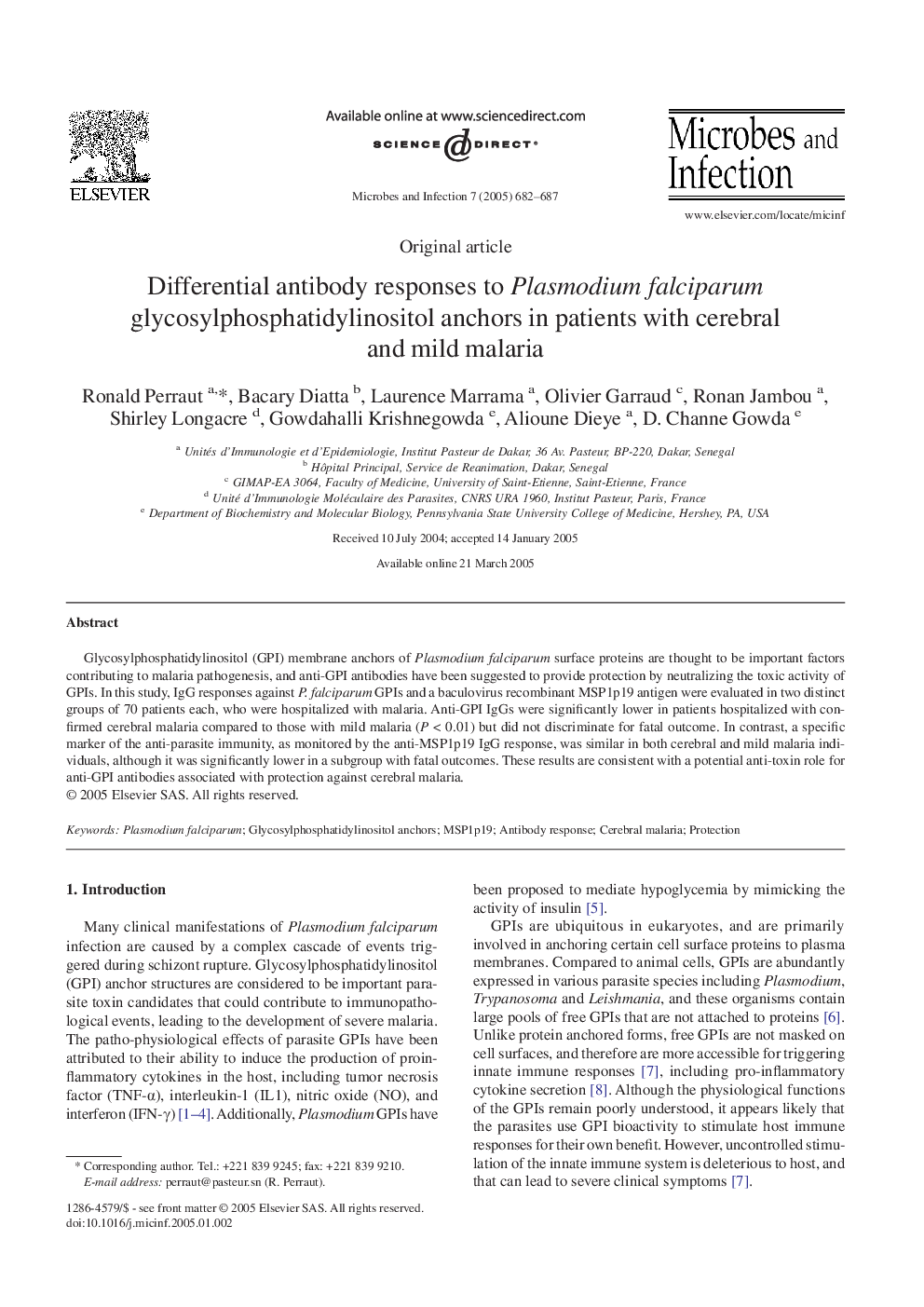| Article ID | Journal | Published Year | Pages | File Type |
|---|---|---|---|---|
| 9282945 | Microbes and Infection | 2005 | 6 Pages |
Abstract
Glycosylphosphatidylinositol (GPI) membrane anchors of Plasmodium falciparum surface proteins are thought to be important factors contributing to malaria pathogenesis, and anti-GPI antibodies have been suggested to provide protection by neutralizing the toxic activity of GPIs. In this study, IgG responses against P. falciparum GPIs and a baculovirus recombinant MSP1p19 antigen were evaluated in two distinct groups of 70 patients each, who were hospitalized with malaria. Anti-GPI IgGs were significantly lower in patients hospitalized with confirmed cerebral malaria compared to those with mild malaria (P < 0.01) but did not discriminate for fatal outcome. In contrast, a specific marker of the anti-parasite immunity, as monitored by the anti-MSP1p19 IgG response, was similar in both cerebral and mild malaria individuals, although it was significantly lower in a subgroup with fatal outcomes. These results are consistent with a potential anti-toxin role for anti-GPI antibodies associated with protection against cerebral malaria.
Keywords
Related Topics
Life Sciences
Immunology and Microbiology
Immunology
Authors
Ronald Perraut, Bacary Diatta, Laurence Marrama, Olivier Garraud, Ronan Jambou, Shirley Longacre, Gowdahalli Krishnegowda, Alioune Dieye, D. Channe Gowda,
